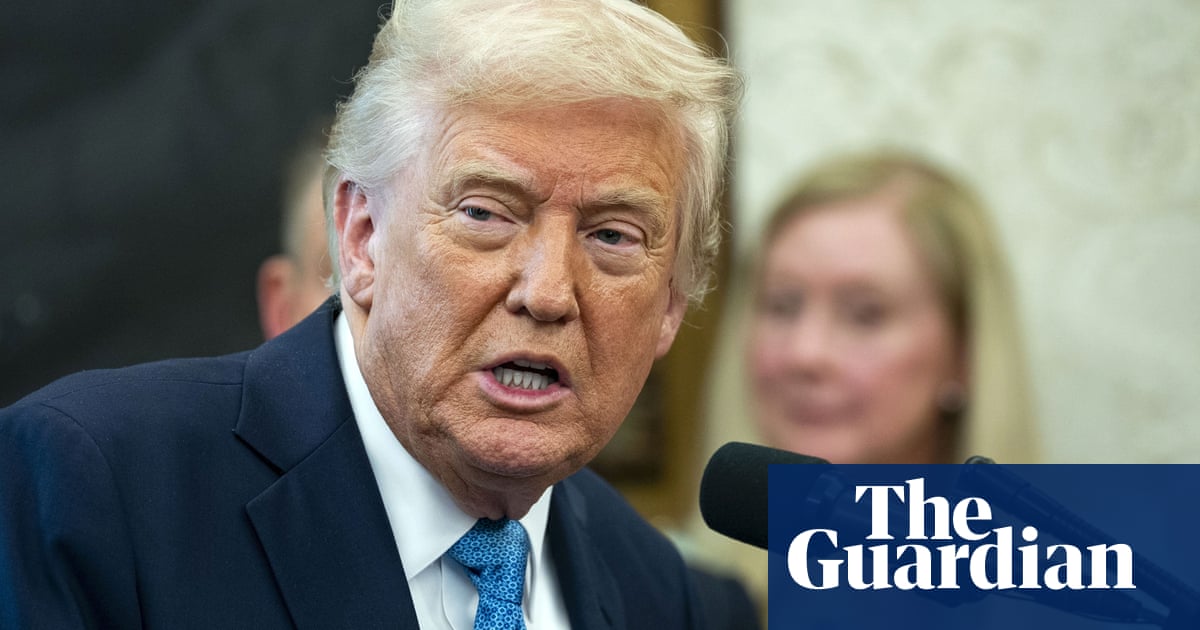Stock markets have risen around the world after Donald Trump said his tariffs on China would come down “substantially” and he had “no intention” of firing the chair of the American central bank, Jay Powell.
The president told reporters in Washington on Tuesday heplannned to be “very nice” to Chinain trade talks and that tariffs could drop in both countries if they could reach a deal, adding: “It will come down substantially, but it won’t be zero.”
The comments sparked a fresh rally on Wall Street, with the S&P 500 blue chip index and the Nasdaq ending the day up by more than 2.5%. Overnight in Asia, Japan’s Nikkei rose by nearly 2%, Hong Kong’s Hang Seng was up 2.4% and the South Korean Kospi gained 1.6%.
The rally spread to Europe in early trading on Wednesday, with the UK’s FTSE 100 index up 1.6%, while the Italian FTSE MiB rose by 1.1%. Germany’s Dax gained 2.6% and France’s Cac 2.1%.
Investor confidence also grew after Trump told reporters he would not fire Powell, the chair of the US Federal Reserve, reversing the previous day’s losses triggered by the presidentcalling the central bank boss a “major loser”.
The president has criticised the Fed chair repeatedly for refusing to cut interest rates and last week hinted that hebelieved he could dismiss Powellbefore his term as the head of the central bank comes to an end in May next year.
Trump wrote on his social media platform, Truth Social, last week that Powell’s termination “could not come fast enough”, after the Fed chair raised concerns about the impact of trade tariffs on the American economy.
However, the suggestion from the White House that the US central bank will remain independent helped stocks to rise on Wednesday, as well as the prospect of lower tariffs on Chinese imports to the US.
The US dollar, which hit a three-year low on Tuesday before recovering, rose by 0.25% against a basket of major currencies.
Oil prices also rose on Wednesday, with Brent crude rising above $68 (£51) a barrel amid hopes that lower tariffs will be less damaging to the global economy. The rise was also led by new American sanctions targeting Iranian liquefied petroleum gas and the crude oil shipping magnate Seyed Asadoollah Emamjomeh.
Meanwhile, gold, which is traditionally viewed by investors as a safe haven asset during volatile periods, retreated from thenew high of $3,500 (£2,620) an ounceit hit on Tuesday, to trade at about $3,307.
